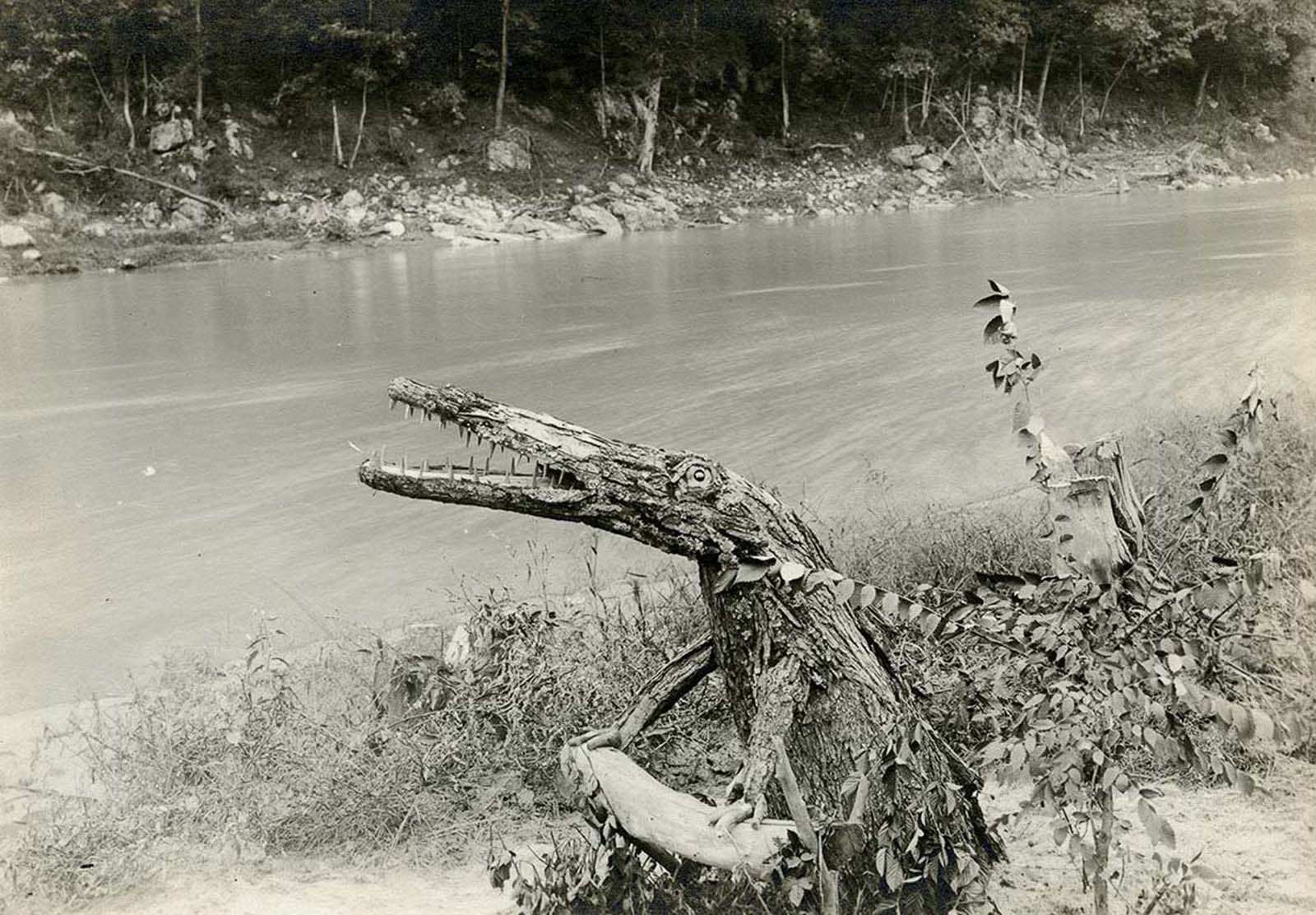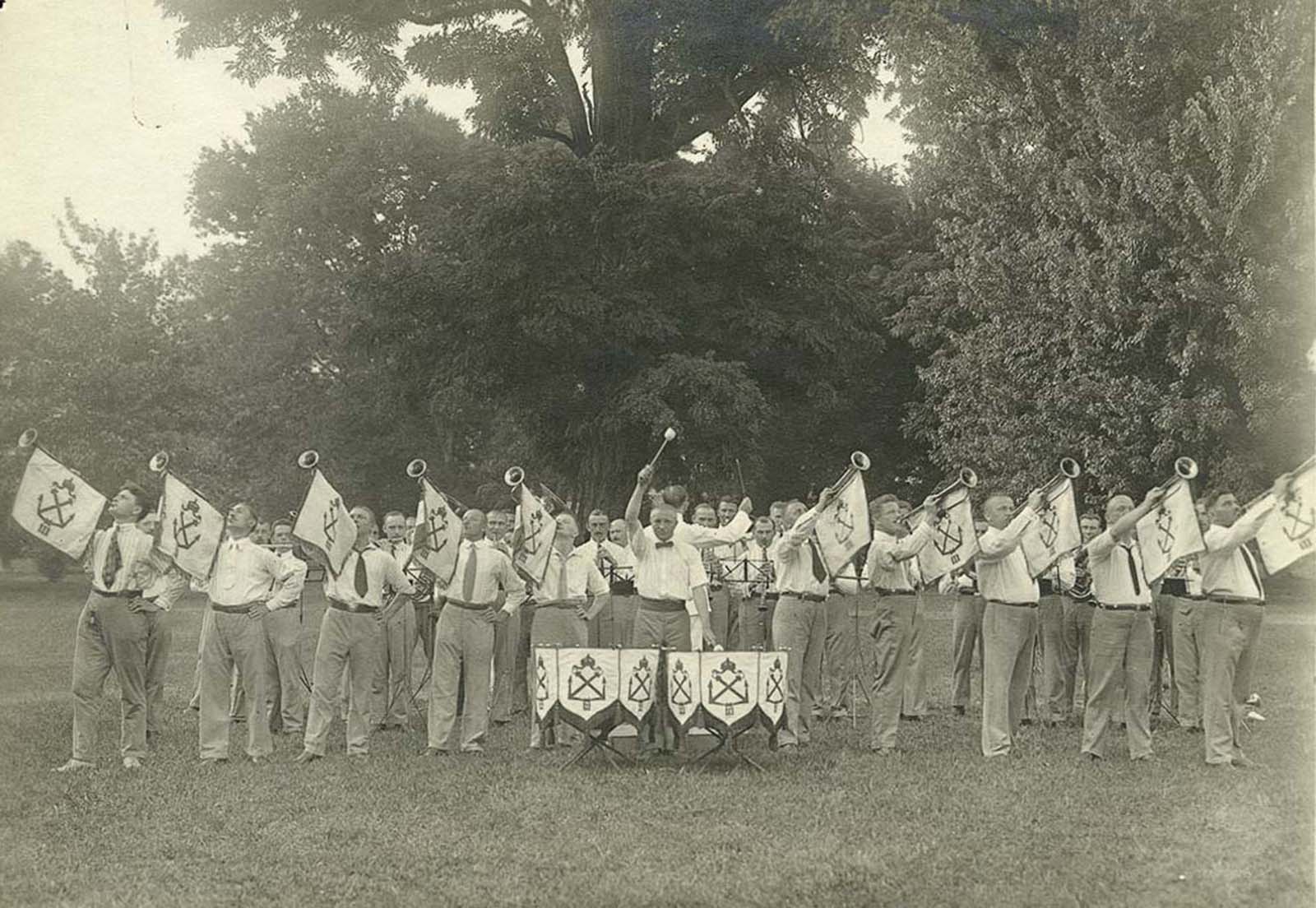The Department of Immigration took more than 2,300 civilian passengers and crew into custody and because they were civilians, they could not be called “prisoners’ of-war” but were named “enemy aliens”. The internees were moved to the Mountain Park Hotel in Hot Springs, located in Madison County, North Carolina. At the time, Hot Springs was populated by less than 700 American residents. Suffice to say, it was a major adjustment for citizens to have their population more than doubled by the Germans, whom they called “Germanies.” To add to the already-swelling population, nearly 30 of the Germans’ wives and children traveled to America to be closer to their husbands and fathers, boarding with Americans at Hot Springs. The “campers” were a diverse bunch, using their unique skill sets to better their stay, including creating a chapel, opening several shops and businesses, building fences around the cottages, and (somehow) constructing a carousel, with music playing as it spun. They had even put together a full brass band and orchestra for nightly entertainment. Over time, the Germans’ relationship with the Hot Springs natives improved significantly. German and American children began going to the same schools, American housewives invited their German counterparts over for tea, and the German language started to become popular, being taught and spoken on the streets. Seeing the fruits of their labor, the German campers attempted to persuade the US government to pay them for their work, believing Hot Springs could eventually be transformed into summer homes for travelers. Unfortunately, their attempts were futile. After a year of crafting a community, news came that the Hot Springs site would be shut down permanently. The campers were to be shipped away to a war camp in Fort Oglethorpe, Georgia, due to the U.S. War Department taking custody of the campers away from the Department of Immigration. Today, every trace of the Hot Springs village is completely gone, as if it never happened. All of the German campers have died, leaving the pictures as the sole evidence of what once was. These German campers were placed in a terrible situation and made the absolute best of it, using the resources, skills and hope they had to create something extraordinary. (Photo credit: North Carolina Museum of History). Notify me of new posts by email.
Δ Subscribe









